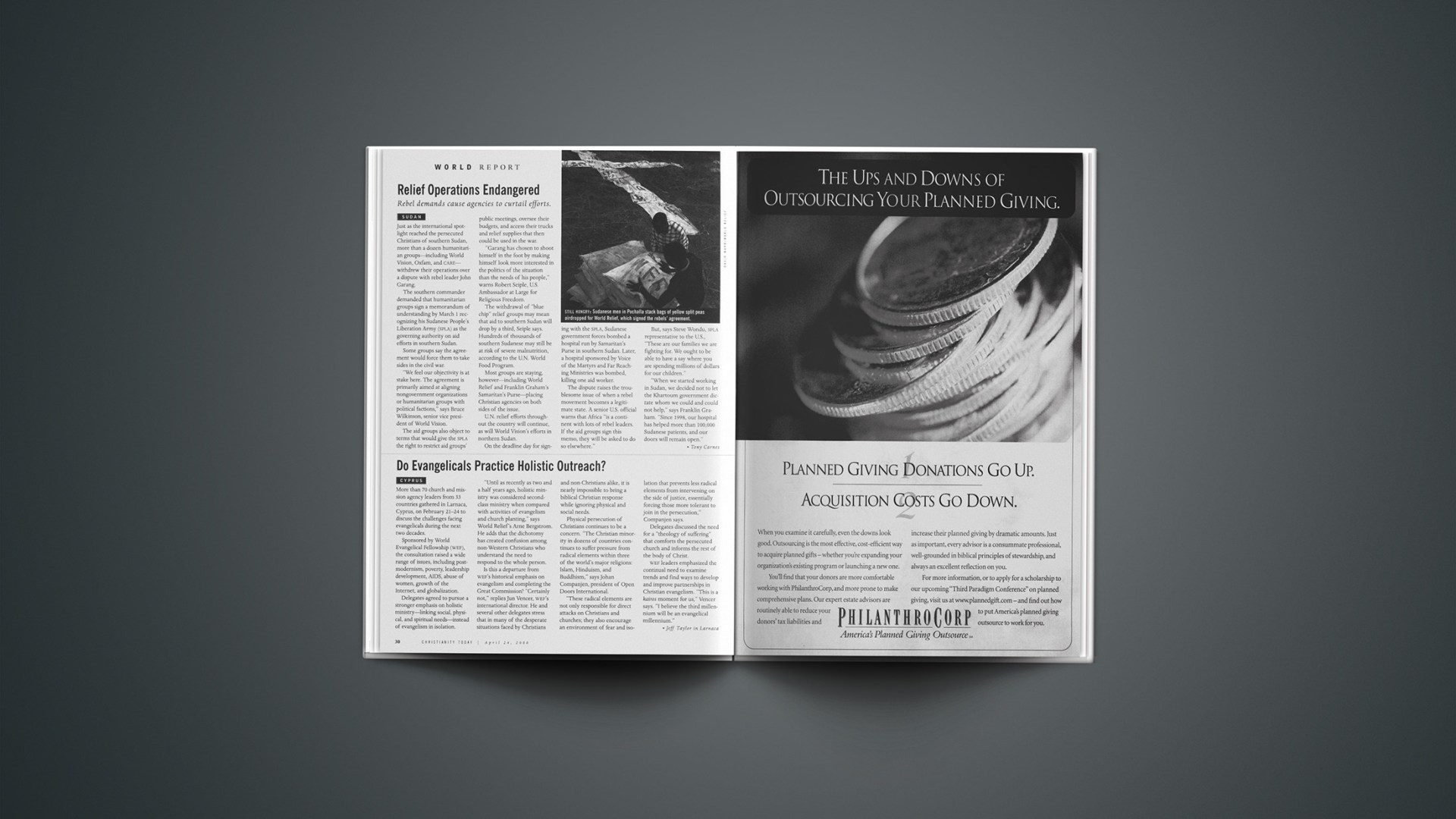More than 70 church and mission agency leaders from 33 countries gathered in Larnaca, Cyprus, on February 21-24 to discuss the challenges facing evangelicals during the next two decades.Sponsored by World Evangelical Fellowship (WEF), the consultation raised a wide range of issues, including postmodernism, poverty, leadership development, AIDS, abuse of women, growth of the Internet, and globalization.Delegates agreed to pursue a stronger emphasis on holistic ministry—linking social, physical, and spiritual needs—instead of evangelism in isolation.”Until as recently as two and a half years ago, holistic ministry was considered second-class ministry when compared with activities of evangelism and church planting,” says World Relief’s Arne Bergstrom. He adds that the dichotomy has created confusion among non-Western Christians who understand the need to respond to the whole person.Is this a departure from WEF’s historical emphasis on evangelism and completing the Great Commission? “Certainly not,” replies Jun Vencer, WEF’s international director. He and several other delegates stress that in many of the desperate situations faced by Christians and non-Christians alike, it is nearly impossible to bring a biblical Christian response while ignoring physical and social needs.Physical persecution of Christians continues to be a concern. “The Christian minority in dozens of countries continues to suffer pressure from radical elements within three of the world’s major religions: Islam, Hinduism, and Buddhism,” says Johan Companjen, president of Open Doors International.”These radical elements are not only responsible for direct attacks on Christians and churches; they also encourage an environment of fear and isolation that prevents less radical elements from intervening on the side of justice, essentially forcing those more tolerant to join in the persecution,” Companjen says.Delegates discussed the need for a “theology of suffering” that comforts the persecuted church and informs the rest of the body of Christ.WEF leaders emphasized the continual need to examine trends and find ways to develop and improve partnerships in Christian evangelism. “This is a kairos moment for us,” Vencer says. “I believe the third millennium will be an evangelical millennium.”
Copyright © 2000 Christianity Today. Click for reprint information.









